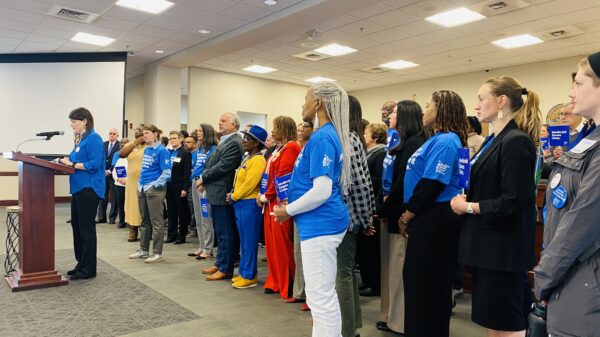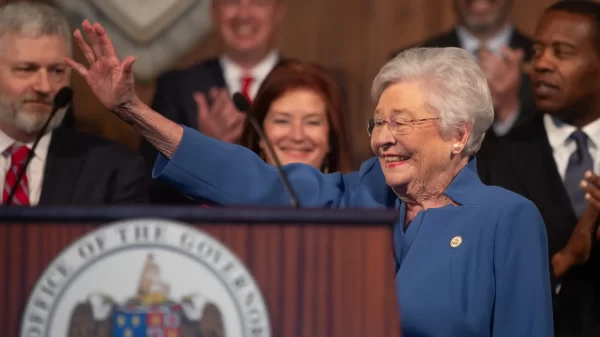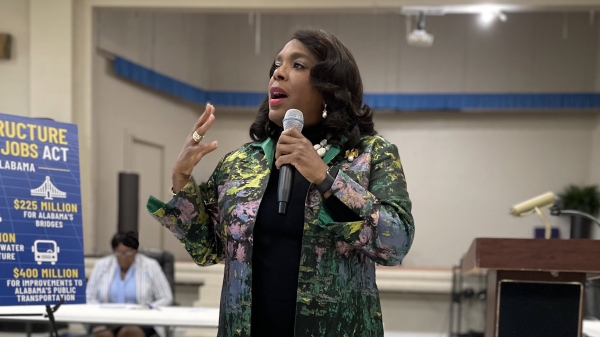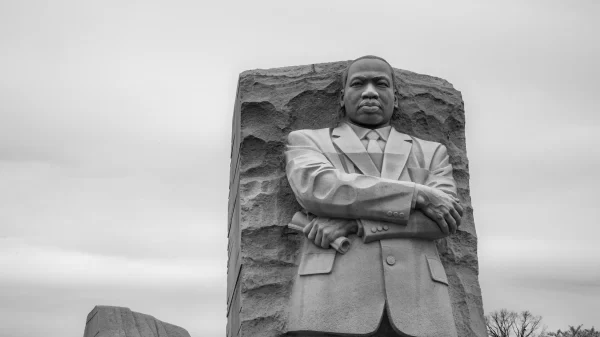By Brandon Moseley
Alabama Political Reporter
Late on Friday, January 23, 2015, Federal District Court Judge Ginny Granade, ruled that Alabama’s marriage laws prohibiting marriage of same-sex couples. Judge Granade claimed that Alabama’s protection of marriage amendment in the State Constitution violates the Due Process and Equal Protection Clauses of the Fourteenth Amendment to the United States Constitution.
On Friday, most of us in the media thought that Judge Granade’s order was immediate and applied statewide in Alabama. Alabama Constitution Article I, 36.03 and Alabama Code 30-1-19, which prohibits same-sex marriage were both wiped away by one, lone unelected Federal judge on a whim.
Late on Saturday, January 24, we learned that the Alabama Probate Judges Association did not view this ruling that way. The Alabama Probate Judges Association announced in a statement that they were seeking to clear up some misconceptions regarding the effect that a Federal court ruling will have on Alabama marriage law.
The group wrote, “Many media outlets are reporting that the ruling, issued Friday by US District Judge Ginny Granade, will allow same sex couples to receive marriage licenses in Alabama beginning Monday morning. The Alabama Probate Judges Association wants to ensure that all Alabamians are clear that Friday’s ruling does not open the door for the issuance of same-sex marriage licenses.”
The Judges continued, “Cari Searcy and Kim McKeand are the only plaintiffs in the case that was filed against Alabama Attorney General Luther Strange. The Alabama Probate Judges Association says that is a key point in the effect that this ruling has on the duties of probate judges.”
Al Agricula who represents the Alabama Probate Judges Association said in a statement, “Judge Granade’s ruling in this case only applies to the parties in the case and has no effect on anybody that is not a named party. The probate judges were not parties in this matter. The legal effect of this decision is to allow one person in one same sex marriage that was performed in another state to adopt their partner’s child. There is nothing in the judge’s order that requires probate judges in Alabama to issue marriage licenses to same sex couples.”
The President of the Alabama Probate Judges Association, Judge Greg Norris said that he hopes that misinterpretation of Friday’s ruling will not cause confusion among the general public. Judge Norris said, “As probate judges, our duty is to issue marriage licenses in accordance with Alabama law and that means we can not legally issue marriage licenses to same sex couples. The recent federal ruling does not change that.”
LGBT and Civil Rights groups strongly disagreed. The Alabama American Civil Rights Union (ACLU), the Southern Poverty Law Center (SPLC) LGBT Project, Equality Alabama (EA) and the Human Rights Campaign (HRC) issued a joint statement on Sunday.
They argued that the Probate Judges are wrong, “The Alabama Probate Judges Association is a private organization whose legal advice is non-binding. Simply put, the non-binding legal opinion of the Probate Association cannot and does not preempt a Federal Order. Probate judges should comply with their constitutional obligations as declared by a federal court rather than the desires of the leaders of a private professional organization.”
Judge Granade has put a two-week stay on her ruling to give the eleventh Court of Appeals time to decide whether or not to extend the stay. Whether Judge Granade’s ruling applies to all Alabamians, or just the lesbian couple who were married in another state, is an issue that will likely be resolved in that period of time.























































